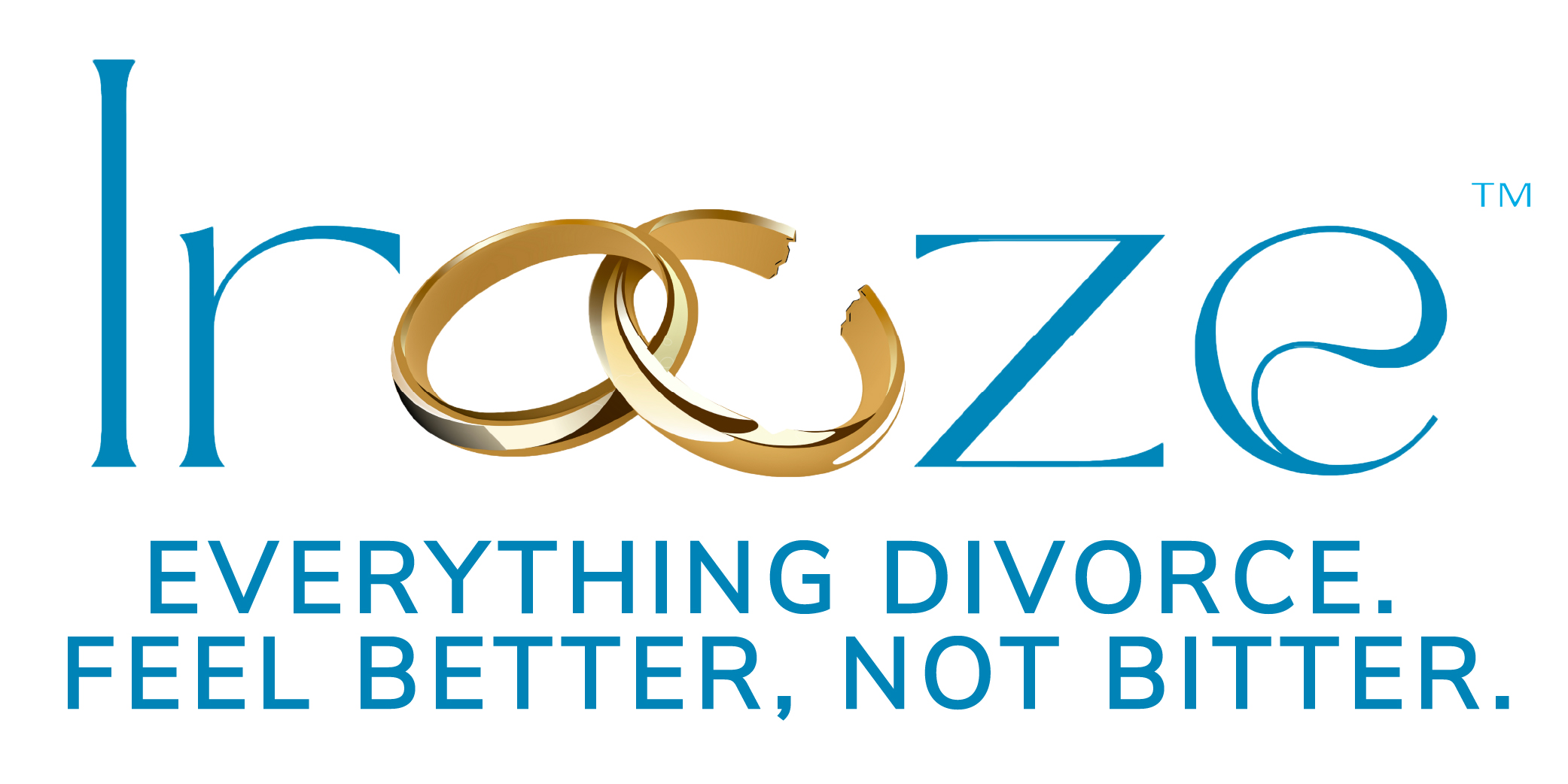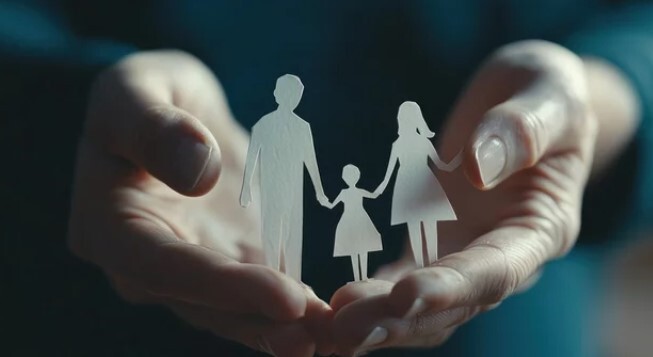Divorce can affect an individual in many ways. The mere thought of considering divorce or a partner serving the other with divorce papers can cause a variety of emotional struggles within a person. From shock to denial, guilt, rage, disappointment, regret, shame, anxiety, hurt, low self-worth, and loneliness, before finally moving forward, the whole divorce process takes its painful toll on both mothers and fathers. Divorce mediation can be a helpful tool in navigating these stages, reducing stress, and facilitating constructive dialogue.
While the divorce process may be different around the world, the emotional experiences of the end of a marriage are similar even though the stories may differ depending on various factors, including who initiated the divorce, whether the divorce is contested or uncontested, if the partner is a high-conflict person and the socioeconomic status of the partners.
However, the emotional experience of the initiator is quite different from the emotions of the non-initiating spouse. While the initiator may feel relief, resentment, or impatience, the non-initiating spouse will experience separate feelings, including anger, hurt, threats, and stress.
So, suppose you’re in the process of divorcing your partner, and you’re taking the first step to initiate it. In that case, it’s important to examine the various distinct emotional stages of divorce as the initiator and how to navigate them to work towards an amicable divorce.
How Initiators Can Navigate the Emotional Side of Divorce
Before a spouse initiates divorce, it’s often common for them to phase through most of the negative feelings they have been feeling. They have spent time retracting from the relationship to evaluate the health and happiness of their marriage, lost sleep over the next step to take, and likely fought through the guilt and hurt, before they came out to request a divorce. This process is often referred to as an ’emotional divorce,’ where the initiator navigates through emotional stages such as denial, anger, and acceptance, paralleling the legal aspects of divorce.
It’s important to understand that each person’s reaction to divorce will vary based on not only if they are the initiator or non-initiating spouse, but on how they see the marriage as good fit for them. Just because someone initiates the divorce, it does not mean they don’t have ill or uncomfortable feelings about it- it simply means that they want something different and have somewhat started to process their feelings. One person may see divorce as freedom and experience relief while another may see it as a failure and fall into depression and may get stuck in the middle and struggle with numerous emotional experiences.
If you observe that the initiator seems calm during the divorce, it could very likely be because they have worked through the negative feelings that they experienced. It’s possible they made peace with their decision while the non-initiator is still working through theirs. However, there is a predictable series of emotional stages most divorcing couples pass through, including the initiator. The various stages are explained next.
5 Emotional Stages of Divorce for the Initiator

Here, we will examine the various emotional and psychological stages of divorce to help you better understand the feelings you’re currently experiencing or may likely experience and how you can work through these feelings. As such, you can effectively navigate through the negative feelings and be a better advocate for yourself.
Emotions Leading Up to Initiating a Divorce
The pre-divorce emotional stages are a critical period in the divorce process. During this stage, individuals may experience a range of emotions, including anxiety, fear, and uncertainty. They may struggle to come to terms with the reality of their situation and may feel overwhelmed by the prospect of divorce.
Stage 1: Denying the Need for Divorce and Feeling Stuck
If you have been thinking or saying these out loud:
“This can’t be happening.”
“It’s all a misunderstanding.”
“We can pull through this.”
“Don’t give up on us.”
This, and many more, are your responses when faced with divorce. You may find yourself trying to fix the whole situation or looking for ways to make it right. You try to deny what is happening and spend time trying to figure out the best ways to make adjustments.
How long you stay in denial depends on how effectively you and your partner discuss your challenges. However, the longer you deny what’s real, the more you become frustrated and the longer it may prolong any decisions.
The occasional thought and the divorce conversation may begin to cause huge strains. Resentment kicks in, but the trail of hope and good feelings remains like a remnant from the days of good beginnings. Which leads to the next stage: the anger stage, where feelings of betrayal and resentment dominate, impacting your emotional state and interactions with family and friends.
Stage 2: Shock, Fear, and Emotional Escalation Stages
In this stage, you’re often caught between emotional outbursts, from panic to numbness to shock, anger, and fear. You feel you don’t deserve what’s happening or, often, find it difficult to sleep. Anger means movement, driving necessary actions during this transition. You’re shocked and afraid of the future for you and your kids. Fear during divorce can be paralyzing, often rooted in uncertainty about finances, custody, and life after separation..
Increased negative feelings, lack of satisfaction, and being increasingly judgmental may stir up certain emotions and conflicts that may escalate the whole process. So, instead of talking about it most amicably, the conversation tends towards attacks, arguments, and withdrawals.
While some couples may choose to seek help from a marriage counselor, others continue in the escalation stage, which causes the marriage to fall faster, leading to divorce.
You may also find yourself asking “Why is divorce so hard?” which could lead you to a series of emotional roller coaster rides. Finding your safe space is key to narrowing down the negative emotions.
Stage 3: Bargaining, Sacrifice, and Deciding Divorce
You may be in a bargaining situation, trying everything possible to make the marriage work. This is a common divorce stage where individuals often believe that the fragile threads of a marriage can be held together by sacrifice. So, you try to surrender your deepest convictions, hard-earned peace, or the essence of who you are, all in the name of preserving the union.
You feel desperate to maintain your marriage and agree to arrangements that question your self-worth. Moreover, you may choose silence and bury your emotions deep within rather than risk the potential turmoil of confrontation.
However, such sacrifices are merely delaying the inevitable. Sooner or later, the weight of these compromises will become unbearable, leading to a loss of self and a bitter resentment, and you or the other spouse decide to divorce.
You may involve a family mediator to help work things out peacefully or go straight to a Family lawyer to understand the legal process, costs, and your rights. Either way, whether it’s with a mediator or separate lawyers, the divorce process starts. It could be a smooth, uncontested divorce or a more complicated, contested one if the two of you do not agree.
Stage 4: Emotionally Managing the Divorce Process

The success of your divorce will start of and end off with YOU. It’s about how you feel, how you act and how you show up that will either make you or break you. Divorce could be harder if you do not have the right support team. On emotional level, it could feel like tearing apart a life you once knew and were comfortable with and, was predictable. Even if you were the one who wanted the divorce, it can still be stressful and scary to think about starting a new life while walking into an unknown territory.
A divorce has three main parts: your feelings, the money and financial considerations, and the legal divorce process. When these elements become entangled with poor communication and emotional escalation, it can quickly turn into a high conflict divorce, making resolution significantly harder. Often, these parts get mixed up, making the process even more complicated. You’ll realize that you can only control yourself and your thoughts. You’ll have to accept that your partner might want different things. With time, you will take a deeper dive into wanting to understand how you also contributed to the end of the marriage. With this, your greatest healing will come when you forgive your partner’s mistakes. This is the first step towards finding peace.
Stage 5: From Fear and Regret to Acceptance After Divorce
Once the divorce is underway or finalized, you may start to feel scared about what’s next. You might feel regret and anger that your old life is over. These emotions are part of the healing process, and even if you were the one who initiated the divorce, there may still exist feelings of guilt and shame, especially if there are children involved. Practicing emotional management during divorce is crucial to avoid being overwhelmed by these intense feelings and to maintain your sense of clarity and control.
Being the initiator of the divorce does not preclude you from negative emotions and uncertainties.
If you have children, try to focus on being a good co-parent. This means working together with your ex to raise your kids healthily. If you are not getting along, at the very least, focus your efforts on co-existing.
Embracing the Future: Reaching Acceptance and Moving Forward After Divorce
On the brighter side, when you start to dream about all the new things you can do now that you’re free, you have reached acceptance. You’ll be open to new experiences and ways of living. Most of the pain will be behind you, except for the occasional reminder of how the divorce has affected your life. You’ve learned much about yourself and your strength and might feel hopeful about the future.
To conclude, divorce can be quite complicated and filled with a roller coaster of negative emotions. However, you mustn’t ignore these feelings, as bottling them in may prevent you from overcoming them as early as possible. This article on the Stages of Divorce Grief may also assist you.
Moreover, you must speak with a qualified Divorce Coach who can offer you the guidance and support through these challenges. If you’d like to speak with one of our Divorce Specialists to create an action plan and to talk through which type of Divorce Coach is most ideal for you, start by taking the self assessment to then schedule your free call on our calendar.





